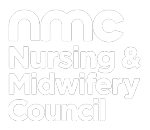
Higher/Degree Apprenticeship Registered Nurse
BSc(Hons) Nursing - four Nursing specialisms
About
Study our Registered Nursing apprenticeship to gain a specialist degree in your chosen field of nursing, which you'll need to register as a professional nurse. Benefit from UWE Bristol's long-standing industry links and excellent reputation for nursing courses.
Why study for a Registered Nurse apprenticeship?
Our Registered Nurse apprenticeship (Level 6) enables you to complete your professional nurse education, while continuing in your current role. Learners looking to take the next step in their training can benefit from this employer-funded training option, to demonstrate a greater depth of knowledge and advanced skills, confidence and competence.
Over the course of four years, you'll receive education validated against the Nursing and Midwifery Council's (NMC) (2018) standards. This includes theory and practice-based learning in your chosen field of nursing: adult, children and young people, learning disabilities or mental health.
Regular review meetings ensure you stay on track academically and in practice, and develop as a caring, competent and critically thinking nurse. By the end of the course, you'll be equipped to meet people's specific care needs, working with adults, children, or those with learning difficulties or mental health needs.
Why UWE Bristol?
Drawing on long-standing links with the NHS, and private and voluntary sector providers, UWE Bristol has an excellent reputation for its nursing courses. This apprenticeship draws on our strengths in developing sustainable, employer-led nursing courses, enriched by the latest in best practice and clinical understanding.
You'll learn using a range of interactive learning methods, technology and innovative simulation facilities, ensuring you'll achieve the fundamental skills for your chosen practice area. This also ensures you're able to problem solve, assess, coordinate, make informed complex decisions, and lead and transform care.
Benefits to your employer
The Registered Nurse apprenticeship offers a new way for your employer to plan for your role in their future workforce. This apprenticeship supports the training of Registered Nurse Degree Apprentices (RNDAs) and the career progression of Assistant Practitioners (APs) and Nursing Associates (NAs) to become Registered Nurses.
As you develop the NMC skills and proficiencies to practice, your employer will benefit from your expertise, with all your tuition fees fully funded via an apprenticeship. By investing in your nurse education, your employer will upskill you as a member of staff while retaining your talents in-house.
It's a flexible and practical way to invest in your professional development, and to address any potential skills gaps in your current team. With access to the latest practice-led education, you'll develop as a competent, well-rounded practitioner, with strong professional values, identity and person-centred approach.
Your employer will have the full support of UWE Bristol's experienced academic community. They'll also benefit from our strong reputation and expertise in nursing, and our extensive links with healthcare trusts and providers. So you'll be supported to make an even greater contribution to your department.
For further information, please read FAQs for Registered Nursing Degree Apprentices, Employers and Educators (PDF).
Entry
Typical offers
- Tariff points: 112
- GCSE: Grade C/4 or above in English and Mathematics or equivalent (we accept Functional Skills Level 2 in Maths and English).
- A-level subjects: No specific subjects required.
- EDEXCEL (BTEC) Diploma: No specific subjects required.
- Access: No specific subjects required.
- Baccalaureate IB: No specific subjects required.
- Irish Highers: No specific subjects required.
- T Levels: No specific subjects required.
Entry requirements
We welcome applications from candidates from a wide variety of backgrounds, therefore we will consider those with equivalent qualifications or professional experience where the above requirements are not met.
All applicants need to be employed in a relevant nursing role.
If you're applying with considerable relevant work experience we would consider applicants on an individual basis.
We use the UCAS Tariff system to make offers to applicants. You can use the UCAS Tariff Calculator to convert your qualifications and grades into points.
If you have studied qualifications at a higher level, e.g. qualifications such as a Degree or PG Diploma, this would potentially be considered instead of UCAS Tariff Points. Please contact UWE Admissions if you need further clarification.
Before you start your course, you'll be required to complete:
- an enhanced Disclosure and Barring Service (DBS) Check
- a Health Check (your employer will be required to share your Occupational Health Clearance with UWE Bristol).
Read more about professional checks.
Interview
All candidates are considered on an individual basis. Shortlisted candidates will be invited to attend an interview.
If you're interested in applying for Advanced Entry onto this course please contact the Degree Apprenticeship Hub, via the contact details at the foot of this page.
ESFA eligibility requirements
To study an apprenticeship, you need to:
- be aged 16 years or over
- be an EEA citizen (with Right to Work in the UK) and not be in any other kind of full-time education (including being enrolled on any other apprenticeship programme)
- be employed (for at least the full planned duration of your apprenticeship) in a role that is linked to the appropriate industry for the apprenticeship training
- receive at least legal minimum wage for apprentices (wages vary depending on experience, employer and level or type of apprenticeship)
- commit to at least six hours per week of apprenticeship training during your normal working hours
- have support from your employer, including a mentor/line manager. Your employer is also responsible for funding your apprenticeship.
More information about eligibility for apprenticeship funding is available on the GOV.UK website.
Find out more about how to meet our entry requirements.
How to apply
Employed
If you're interested in applying and have the support from your employer, speak to your line manager and/or HR team in the first instance for approval. Your employer will contact us so we can send you an application link.
Unemployed
If you're not employed, you can use the following tools to find an apprenticeship vacancy with an employer:
- Employer's careers page
- Find an Apprenticeship
- UCAS Apprenticeship search
For more guidance on higher and degree apprenticeship applications.
If you're interested in applying for Advanced Entry onto the course, please contact the Degree Apprenticeship Hub. Their contact details are below, under 'For further information' section.
Employers
Get in touch with us to speak to a partnership manager and discuss how we can support you.
For further information
For course-specific enquiries, please contact the Programme Leader.
For Entry Requirement enquiries, please contact Admissions@uwe.ac.uk.
For all other enquiries, please email our Apprenticeship Hub apprenticeships@uwe.ac.uk or call +44 (0)117 32 84888.
For further information about Higher and Degree Apprenticeships.
Structure
Content
The Registered Nurse apprenticeship is mapped to the proficiencies set out by the NMC (2018).
This programme is organised as a day-release course.
Year one
- Applied Episodes of Care
- Essentials of Nursing Practice
- Nursing Principles
- Pharmacology, Anatomy and Physiology.
Year two
- Applied Episodes of Care 2
- Global Sustainable Public Health
- Medicine Management and Pharmacology
- Supporting Complex Needs.
Year three
- Applied Episodes of Care 3
- Decision Making and Assessment
- Research Methodologies of Nursing
- Supervision and Leadership.
Year four
- Applied Episodes of Care 4
- Nursing Project
- Progression to Registration
plus
- One optional module.
You'll take part in simulation activities, lectures, group work, and directed and self-directed learning.
Learning and Teaching
This course has a strong practical focus, allowing you to gain competence carrying out the hands-on tasks you'll perform in your career. About half your time will be spent on placements.
You'll have access to all the support and facilities you need, including our Skills Simulation Suite. This includes an imitation ward where you'll develop your clinical expertise in a safe, instructive environment.
See our glossary of teaching and learning terms.
Assessment
Assessment takes the form of continuous clinical practice assessment, written assignments, case studies, Objective Structured Clinical Examinations (OSCEs), project/portfolio work, timed examinations and presentations. In your final year, you'll complete a dissertation.
Learn more about assessments.
Features
Professional accreditation
On successful completion of this apprenticeship, you'll be able to register to practise as a professional nurse with the Nursing and Midwifery Council (NMC). You'll achieve a BSc(Hons) Nursing degree in your chosen specialism and will graduate with one of the following:
- BSc(Hons) Nursing (Adult)
- BSc(Hons) Nursing (Children and Young People)
- BSc(Hons) Nursing (Learning Disabilities)
- BSc(Hons) Nursing (Mental Health).
Placements
You'll complete a year-long placement in years one and two, two placements in years three and four, and off-the-job learning in different departments. This means you'll spend half the course, 50%, in practice applying your knowledge and building your professional skills in a range of settings. You'll gain hands-on experience in your own workplace and through external placements. We have excellent links with local employers, and placements are normally split between NHS roles and positions in private or voluntary sector organisations.
Personalised virtual tour
There's no need to visit us in person to explore our facilities and campuses. Take a personalised virtual tour and discover it all for yourself from wherever you are.
Take a virtual tourCareers
In addition to supporting your development in the workplace, this apprenticeship will help you to understand the career landscape in your sector and plan for your longer-term ambitions. Our award-winning Careers Service is on hand to give you independent advice and guidance at any point in your studies.
Life

Health and Wellbeing
We provide support in the way you need it.

Bristol
A stunning city for student living with all the qualities to make you want to stay.

Sports, societies and activities
There is more to your experience here than study. Choose to make the most of it and try new things.

Sustainability
It is embedded in our culture, teaching and research.

Campus and facilities
Discover our campuses and the wealth of facilities provided for our students.
